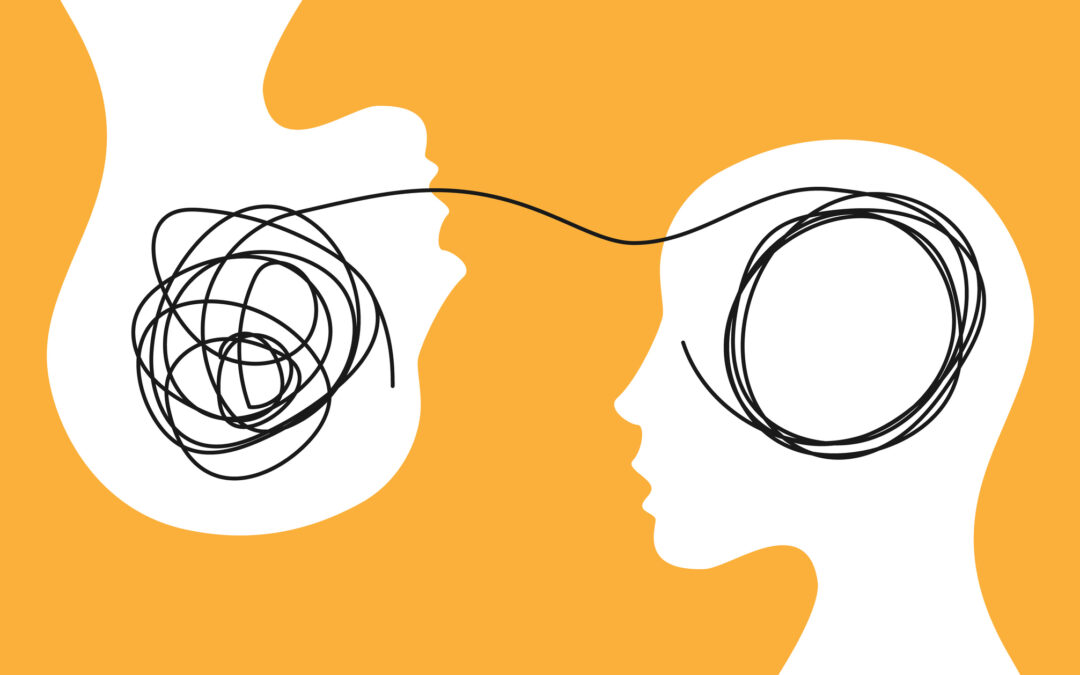According to the American Foundation of Suicide Prevention, over 47,000 people died by suicide in the United States in 2017. In the same year, there were an estimated 1,400,000 suicide attempts. Knowing the signs of suicide is the primary step in preventing someone...

From Pain to Power: The Narrative Trauma Therapy Experience
In the journey of healing from trauma, the power of storytelling is often underestimated. Yet, within the realm of mental health counseling, narrative trauma therapy stands as a profound method for fostering healing and resilience. By harnessing the narrative of one’s experiences, this therapeutic approach offers a pathway towards understanding, processing, and ultimately transforming trauma’s impact on one’s life.
Understanding Narrative Trauma Therapy
At its core, narrative trauma therapy is rooted in the belief that our experiences are shaped by the stories we tell ourselves. Trauma, whether stemming from childhood adversities, abuse, or other distressing events, can often disrupt these narratives, leaving individuals feeling fragmented, powerless, and stuck in a cycle of pain.
Through narrative trauma therapy, clients are invited to explore their past experiences within a safe and supportive environment. Guided by a trained therapist, clients embark on a journey of self-discovery, gradually unraveling the threads of their personal narratives. By revisiting and reshaping these narratives, individuals can reclaim agency over their stories, ultimately fostering healing and empowerment.
What to Expect in Narrative Trauma Therapy
During narrative trauma therapy sessions, clients can expect a collaborative and client-centered approach. Therapists work alongside clients, providing compassionate guidance and support as they navigate their unique healing journey.
- Exploration of Personal Narratives: Clients are encouraged to explore and articulate their experiences, emotions, and beliefs within the context of their personal narratives. Through techniques such as storytelling, journaling, and guided reflection, individuals gain insight into the ways trauma has impacted their lives.
- Identification of Negative Thought Patterns: Within the narrative therapy framework, emphasis is placed on recognizing and challenging negative thought patterns perpetuated by trauma. By identifying and reframing these beliefs, clients can cultivate a more compassionate and empowering self-narrative.
- Integration and Meaning-Making: Through the process of storytelling and reflection, clients begin to integrate their experiences into a coherent narrative framework. This process facilitates meaning-making and enables individuals to construct new narratives that honor their resilience and strength.
- Skill-Building and Coping Strategies: Narrative trauma therapy equips clients with practical coping strategies and resilience-building techniques to navigate future challenges. By fostering a sense of agency and self-efficacy, individuals develop the skills necessary to cope with adversity and cultivate a sense of empowerment.
Who Can Benefit from Narrative Trauma Therapy?
Narrative trauma therapy is a versatile approach that can benefit individuals grappling with various forms of trauma, including:
- Childhood Trauma Survivors: Adults who experienced adverse childhood experiences, such as abuse, neglect, or household dysfunction, can find healing through narrative trauma therapy.
- Survivors of Abuse or Assault: Those who have experienced physical, emotional, or sexual abuse, as well as survivors of assault or violence, can benefit from exploring and reframing their narratives.
- Individuals with PTSD: Narrative trauma therapy can be particularly beneficial for individuals diagnosed with post-traumatic stress disorder (PTSD), offering a holistic approach to healing and recovery.
Changing Negative Thought Patterns
Narrative trauma therapy serves as a powerful tool for challenging and transforming negative thought patterns perpetuated by trauma. Here are some examples of negative thoughts that narrative trauma therapy can help change:
- “I’m to blame for what happened.”: Many trauma survivors grapple with feelings of guilt and self-blame. Narrative therapy helps individuals reframe these beliefs, recognizing that responsibility lies with the perpetrator, not the victim.
- “I’ll never be able to trust anyone again.”: Trauma can erode trust in others and the world at large. Through narrative therapy, individuals can explore their beliefs about trust, challenge distorted perceptions, and cultivate healthier relationship dynamics.
- “I’m broken beyond repair.”: Feelings of worthlessness and hopelessness are common among trauma survivors. Narrative trauma therapy emphasizes resilience and strength, helping individuals recognize their inherent worth and capacity for healing.
In conclusion, narrative trauma therapy offers a transformative approach to healing from trauma by harnessing the power of storytelling. Through exploration, reflection, and reframing, individuals can reclaim agency over their narratives, fostering resilience and empowerment in the face of adversity.
If you’re looking for a narrative therapy specialist, Nhu An Lam, LMHC and Ellen Bass, LMHCA are available to help! Contact us to schedule an appointment today.
Sources:
- The Dulwich Centre: https://dulwichcentre.com.au – Provides resources, articles, and training opportunities on narrative therapy.
- White, M., & Epston, D. (2005). Narrative Means to Therapeutic Ends. W.W. Norton & Company.
- Denborough, D. (2014). Retelling the Stories of Our Lives: Everyday Narrative Therapy to Draw Inspiration and Transform Experience. W.W. Norton & Company.

Do You Know the Signs of Someone Who is Suicidal?

How to Practice Self-Compassion
From a young age, most of us are taught how to be kind, considerate, and compassionate toward others. But rarely are we told to show the same consideration to ourselves. This becomes even more true for individuals brought up in hyper-critical or neglectful homes....

Making New “Glory Days”: How to Stop Obsessing About Youthful Successes
“Ahh, the good ol’ days.” How often have we heard or uttered this familiar phrase? It can be a source of great pleasure and amusement to reminisce on a time when we were younger, remembering a special event or activity. We tend to look at our past experiences through...

4 Reasons We Judge Others and How to Break the Habit
One of the things most of us are taught as children is to never judge others. “Don’t judge a book by its cover!” And yet, despite our best efforts, many of us fall into the trap over and over again. Why do we do it? Here are four common reasons that explain this...

When to Worry: Recognizing Signs of Trauma in Your Loved Ones
Over the past several years, there have been numerous traumatic events making news all across the country. From incidents of mass violence to devastating natural disasters, hundreds of thousands of Americans have experienced or witnessed a disastrous or...



